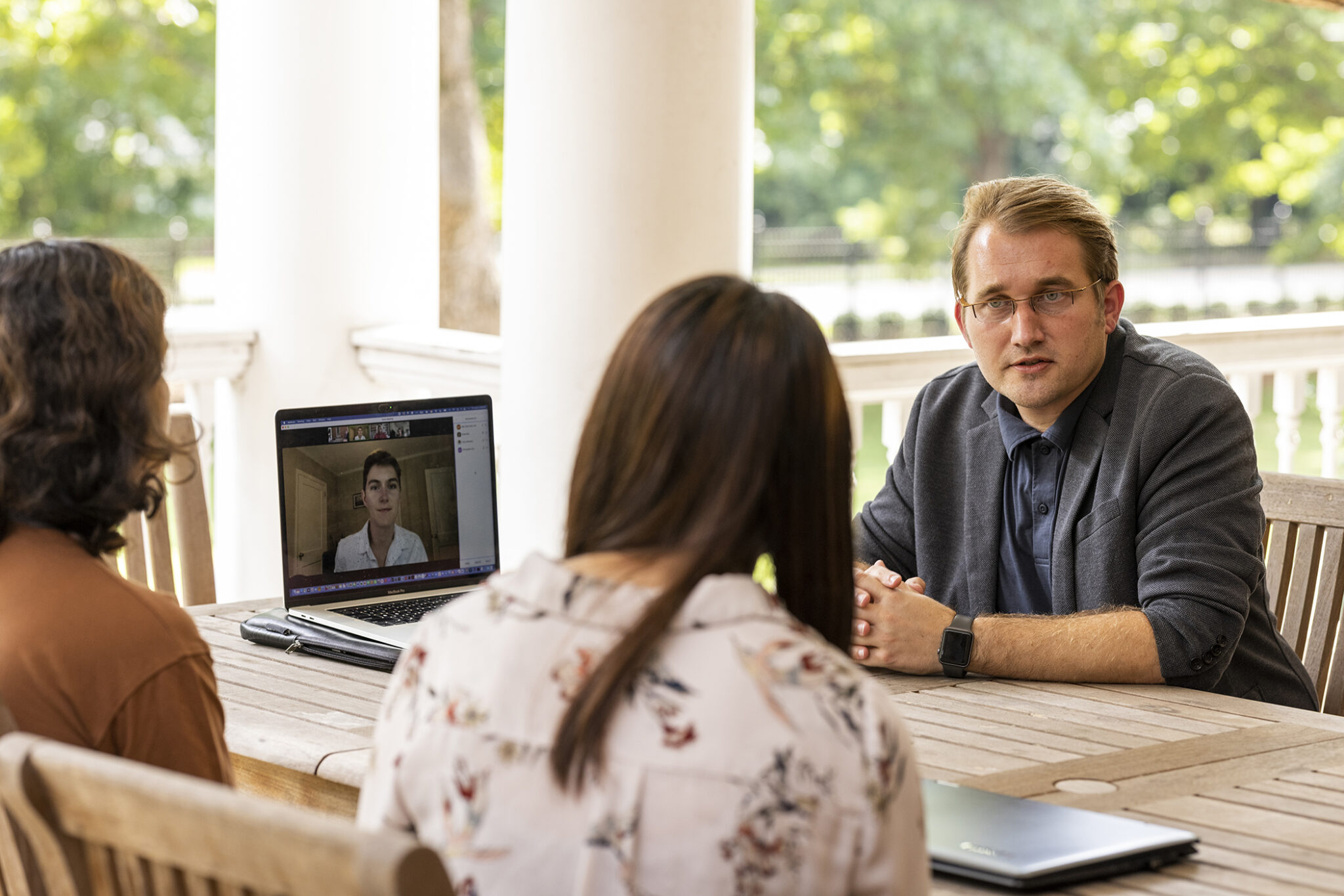To say Allan Tate has many interests would be an understatement. On top of an early career in marketing and business analytics, he loves to travel, cultivates rare trees, and was a ballroom dancer and, even once, a film choreographer. But an underlying love of math and social justice ultimately led him to a career in data science and public health.
Now as an assistant professor at the University of Georgia College of Public Health, Tate brings a collaborative and entrepreneurial spirit to his role at UGA.
Tate says he was drawn to the department of epidemiology and biostatistics at UGA in part because of the faculty’s commitment to the university and college’s teaching mission and because his colleagues were excited about the blend of technology and new ways of approaching instruction. He also appreciates the college’s lower student-to-faculty ratio.
“Because I employ a collaborative coaching model, a smaller student body means that I can go deeper into training the next generation of leaders, and I personally get a lot out of interacting with students one-on-one,” said Tate. “The collaborative aspects of faculty-student partnerships have created some nice blends of instructional innovations in the classroom and research-oriented mentorship on extramural projects that I work on.”
Some of those innovations have led to changes in the way Tate’s department teaches foundational courses in epidemiology, addressing fears about working with data early on and drawing a more diverse set of students into the field.
“By exposing students to data in a systematic way, that helps them realize that actually their skills in qualitative thinking and theory can directly connect to quantitative data, and that they can be quite good at it, even with large data sets, which are sometimes overwhelming for students in the beginning,” said Tate.
The ability to work with big data and be able to interpret and translate the data into information used by stakeholders and decision-makers is another critical skill students need to build before they enter the workforce. Practicing this kind of data literacy is a main focus of the new undergraduate Certificate in Public Health Data Fluency that Tate coordinates, which launched in spring 2022.
The certificate is designed to equip students with the technical and problem-solving skills they need to directly work with health data and lead modern private and public health sector teams, he said.
And Tate doesn’t focus intently on grades. He cares more about his students connecting with the concepts and pushing themselves to build their skills.
“My instructional methods assume people are not perfect when they come into the classroom. I heavily invest in conscientious students who are willing to make mistakes and aim to correct and advance their sophistication in working either with data or very difficult, gray areas of public health problems,” he said.
Tate’s own research interests focus on the difficult, gray areas of public health. Broadly, Tate studies how structural interventions can improve health and close health disparities. He and CPH colleague Grace Bagwell Adams are leading the Family Matters Georgia site study, a collaboration with the University of Minnesota, that will examine the impact of structural racism on the health of 300 rural families over the life course.
“Health disparities won’t go away unless we address what actually causes them to emerge. If structural racism is a cause of health disparities, we need upstream interventions that are not the responsibility of individuals to correct on their own. These causes are an everyone problem,” he said.
Tate has been a mentor for undergraduate and graduate public health students who want to expand their abilities to research big problems that are meaningful to them. This mentorship is formalized in a senior-level undergraduate epidemiology class that Tate teaches, with around 70 students each semester.
“They take the issue that they want to explore with the data, and I provide mentorship through the construction of the research question, all the way through the analysis of very large data sets in some cases, to systematically employ the scientific method to discover patterns of health relationships in that data,” he said.
Through his service on curriculum committees at the departmental, college and university level, Tate has observed the need to onboard new students in a way that fills in learning gaps and sets them up to succeed. This fall, he’ll be co-teaching a GradFIRST data literacy seminar offered to majors across campus to coach foundational data management and research skills for interdisciplinary research contexts.
It’s hard to say what Tate will add next to his growing list of interests, but it’s clear that his passion for discovery is driving the College of Public Health and the university to new levels of teaching excellence.
– Lauren Baggett
Read story at UGA Today.
Posted on October 3, 2022.







